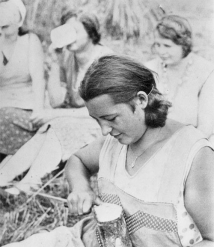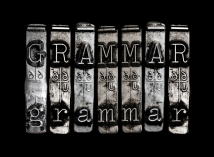Teaching History articles
1043 publications
-
 Cunning Plan 166: developing an enquiry on the First Crusade
Cunning Plan 166: developing an enquiry on the First Crusade
-
 Active remembrance
Active remembrance
-
 Polychronicon 165: The 1917 revolutions in 2017: 100 years on
Polychronicon 165: The 1917 revolutions in 2017: 100 years on
-
 Move Me On 165: Capturing student interest vs. sense of period
Move Me On 165: Capturing student interest vs. sense of period
-
 Nurturing aspirations for Oxbridge
Nurturing aspirations for Oxbridge
-
 Teaching, learning and sharing medieval history for all
Teaching, learning and sharing medieval history for all
-
 Beyond tokenism: diverse history post-14
Beyond tokenism: diverse history post-14
-
 Cunning Plan 165: Helping lower-attaining students
Cunning Plan 165: Helping lower-attaining students
-
 'Victims of history': Challenging students’ perceptions of women in history
'Victims of history': Challenging students’ perceptions of women in history
-
 New, Novice or Nervous? 165: Enabling progress - students who need more support
New, Novice or Nervous? 165: Enabling progress - students who need more support
-
 Polychronicon 164: The End of the Cold War
Polychronicon 164: The End of the Cold War
-
 Historical scholarship and feedback
Historical scholarship and feedback
-
 Effective essay introductions
Effective essay introductions
-
 Low-stakes testing
Low-stakes testing
-
 Triumphs Show 164: interpretations at A Level
Triumphs Show 164: interpretations at A Level
-
 Move Me On 164: Similarity & Difference
Move Me On 164: Similarity & Difference
-
 New, Novice or Nervous? 164: Constructing narrative
New, Novice or Nervous? 164: Constructing narrative
-
 Making rigour a departmental reality
Making rigour a departmental reality
-
 Taking control of assessment
Taking control of assessment
-
 History as a foreign language
History as a foreign language
-
 Promoting rigorous historical scholarship
Promoting rigorous historical scholarship
-
 Cunning Plan 163.1: GCSE Thematic study
Cunning Plan 163.1: GCSE Thematic study
-
 Shaping the debate: why historians matter more than ever at GCSE
Shaping the debate: why historians matter more than ever at GCSE
-
 Does the grammatical ‘release the conceptual’?
Does the grammatical ‘release the conceptual’?
-
 Polychronicon 163: Europe: the longest debate
Polychronicon 163: Europe: the longest debate
-
 Cunning Plan 163.2: Developing an A-level course in medieval history
Cunning Plan 163.2: Developing an A-level course in medieval history
-
 Tracking the health of history in England’s secondary schools
Tracking the health of history in England’s secondary schools
-
 New, Novice or Nervous? 163: Historical significance
New, Novice or Nervous? 163: Historical significance
-
 Move Me On 163: Ahistorical thinking
Move Me On 163: Ahistorical thinking
-
 From the history of maths to the history of greatness
From the history of maths to the history of greatness

